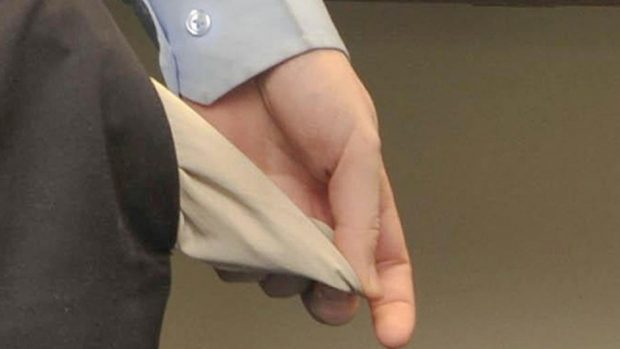Hundreds more people across the north and north-east are being forced to seek emergency financial help from local councils.
The number of successful applications for crisis and community grants is more than 60% higher than a year ago in some areas – severely stretching budgets.
Almost 38,000 households across the region received urgent assistance with day-to-day living costs in the first quarter of this year.
Aberdeen City Council spent almost a third of its entire annual share of the Scottish Welfare Fund in just three months from April to June.
Local authorities – which distribute the £33million pot provided by the UK and Scottish governments – can top-up from their own budgets.
In Aberdeenshire, the sum paid in crisis grants more than doubled to £55,836 compared with the same period last year.
The rise far outstrips the 5% increase in demand for urgent help across Scotland as a whole, including a 10% rise in crisis grants.
They are given to people on low incomes who suffer “a disaster or an emergency” and need money for food, heating and other costs.
People saying they had lost money or had it stolen accounted for the biggest rise – with a drop in the number of people reporting they had spent all their benefits.
Community care grants are for families facing “exceptional pressures” or to help people moving out of residential accommodation.
The money awarded was mostly used for carpets, beds, white goods and soft furnishings.
Applications rose 28% in Aberdeen City, 26% in Aberdeenshire, 20% in Shetland, 8% in Moray, 6% in Highland and 2% in the Western Isles.
While overall applications fell 20% in Orkney – the council there gave out six more crisis grants than the same period the year before, up 33%.
Aberdeenshire awarded 245 more crisis grants – a 64% rise – while the city gave out an additional 485, up 42%.
In Aberdeenshire there has also been a 16% increase in the number of people applying for housing benefit and council tax discounts as family budgets continue to feel the squeeze.
There was a rise in the numbers of people applying for multiple grants within the same year.
More than half of grants went to single people but a third were claimed by households with children.
Nationally, there was a move towards providing help in cash or bank transfers rather than store vouchers or goods.
More than 30,000 people sought help from Citizens Advice in the north and north-east last year.
They ended up an estimated £24.7million better off as a result – more than £800 each on average – by being steered out of difficulties.
Claiming benefits, dealing with debt and finding work were by far the most common difficulties dealt with.
And up to a quarter of those turning to the service were from the least-deprived fifth of areas, as the oil and gas crisis continues to bite.
The picture was revealed in Citizens Advice Scotland’s (CAS) first analysis of the full impact of its free advice – mostly delivered by volunteers.
It calculated that it generated £11 of value for every £1 of core funding for its 61 independent bureaux, phone lines and website.
Across the north and north-east, 181,743 pieces of advice were dispensed to 30,346 people.
That included 15,187 in Highland (£14.2million), 6,978 in Aberdeen (£4.2million) and 5,588 in Aberdeenshire (£5.8 million).
In Moray, where 2,593 people were saved £0.5million, housing accounted for the second-highest number of inquiries.
According to CAS calculations 27% of those helped in Aberdeenshire and 19% in Aberdeen lived in parts of the area considered the best off.
In Highland and Moray the proportion was only 4% and 9%.
